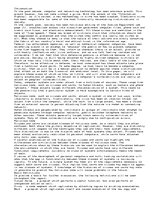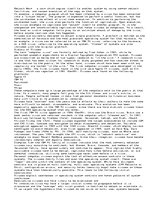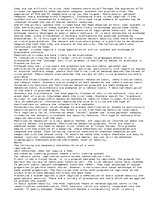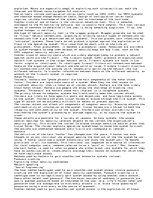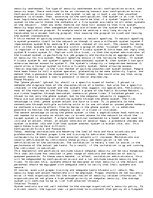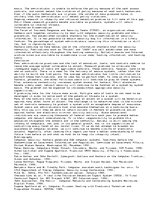-
Computer Viruses
In the past decade, computer and networking technology has seen enormous growth. This growth however, has not come without a price. With the advent of the "Information Highway", as it's coined, a new methodology in crime has been created. Electronic crime has been responsible for some of the most financially devastating victimizations in society.
In the recent past, society has seen malicious editing of the Justice Department web page (1), unauthorized access into classified government computer files, phone card and credit card fraud, and electronic embezzlement. All these crimes are committed in the name of "free speech." These new breed of criminals claim that information should not be suppressed or protected and that the crimes they commit are really not crimes at all. What they choose to deny is that the nature of their actions are slowly consuming the fabric of our country's moral and ethical trust in the information age.
Federal law enforcement agencies, as well as commercial computer companies, have been scrambling around in an attempt to "educate" the public on how to prevent computer crime from happening to them. They inform us whenever there is an attack, provide us with mostly ineffective anti-virus software, and we are left feeling isolated and vulnerable. I do not feel that this defensive posture is effective because it is not pro-active. Society is still being attacked by highly skilled computer criminals of which we know very little about them, their motives, and their tools of the trade. …

